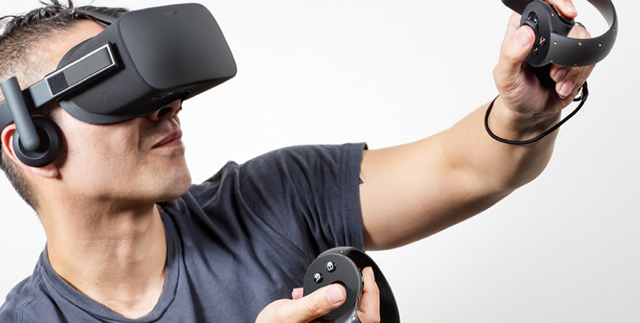Tech Leaders Envision a Globally Connected Future with VR
September 10, 2015
Oculus chief executive Palmer Luckey and Facebook chief executive Mark Zuckerberg are “ground zero” for the 3D immersive technology, but the big-name fan base is growing, including SpaceX/Tesla chief executive Elon Musk and Facebook board member Mark Andreessen, who not long ago was skeptical about funding a virtual reality company. What they all believe is that VR will be a truly paradigm-shifting technology that will connect everyone in the world, for a growing range of activities from video games to business meetings.
In Vanity Fair, Zuckerberg describes his belief that VR headsets will “eventually scan our brains, then transmit our thoughts to our friends the way we share baby pictures on Facebook today.”
“Eventually I think we’re going to have technology where we can communicate our full sensory experience and emotions to someone through thought,” he says. “The real challenge is figuring out what’s possible now.”
When Facebook ships the Oculus Rift in early 2016, users will pay approximately $1,500 for both the headset and the computer required to use it, considerably less expensive than past VR headsets, and more sophisticated than the $200 version that Oculus created for use with Samsung cell phones, Samsung Gear.
Among the enthused is Legendary Entertainment chief executive Thomas Tull, who notes how much more of a game changer VR is than HDTV or even 3D movies. “Once you see virtual reality done well,” he says, “you take off the headset and say, ‘There’s really a chance here to do something completely different.'”
Zuckerberg says his mission is to “connect everyone in the world,” not simply the billion people connected on Facebook, and he sees the VR headset as an intermediary step on the way to glasses or contact lenses. The vision held by Zuckerberg and many others is to create the “metaverse,” an idea formulated by writer Neal Stephenson (now Magic Leap chief futurist) of “a nearly limitless virtual world populated by billions of plugged-in people.”
Musk is also a believer, and said so in another Vanity Fair article. “[Virtual reality is] quite transformative,” he says, predicting that, “we’ll see less physical movement in the future,” with VR. “As video games get more lifelike and incorporate technologies such as haptic suits,” he adds, “it becomes, beyond a certain resolution, indistinguishable from reality.”
Zuckerberg points out, however, that the ramp up to the metaverse will be slow. “The first smartphones… I don’t know if they sold a million units in the first year,” he says. “But it kind of doubles and triples each year, and you end up with something that tens of millions of people have. And now it’s a real thing.”


No Comments Yet
You can be the first to comment!
Sorry, comments for this entry are closed at this time.